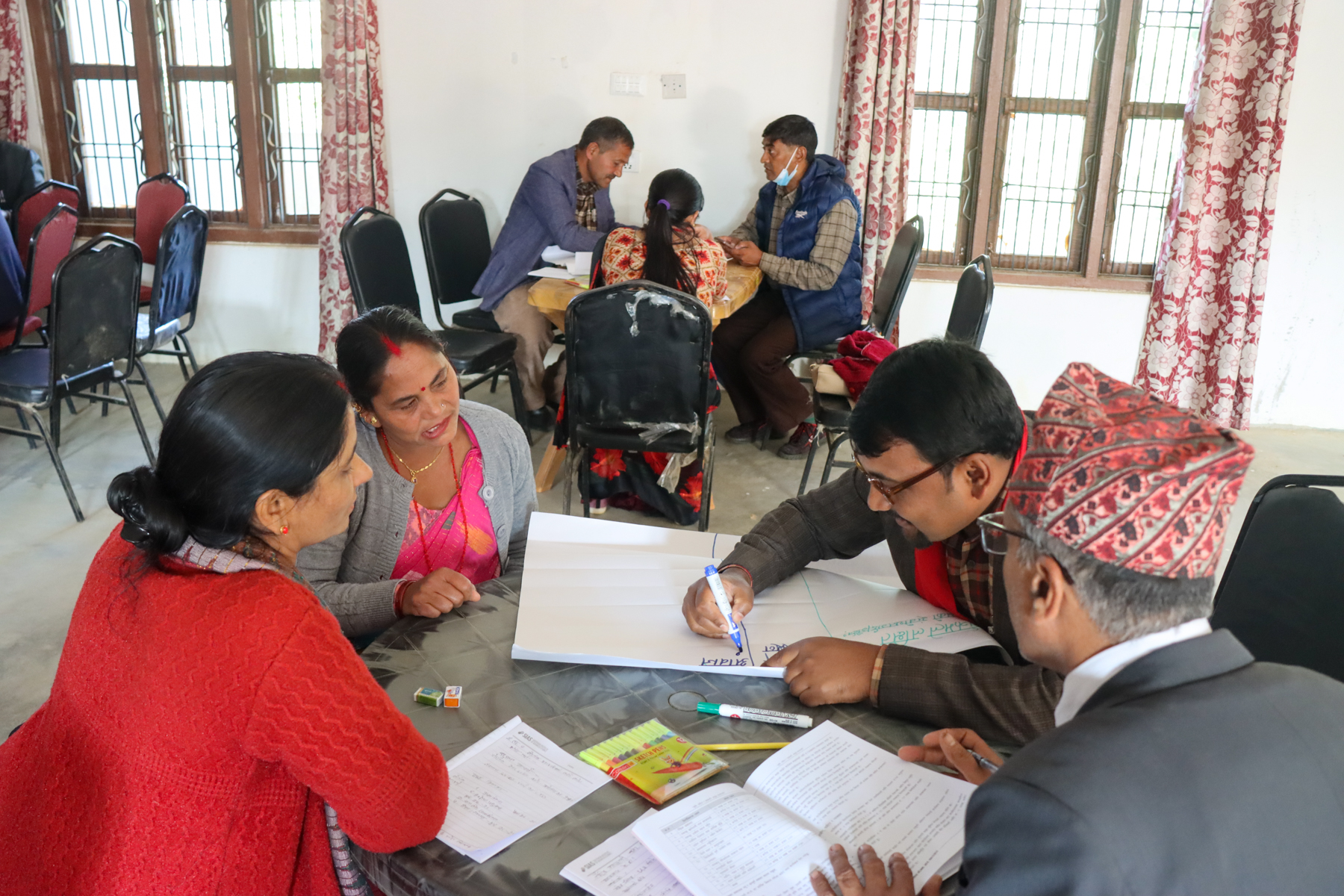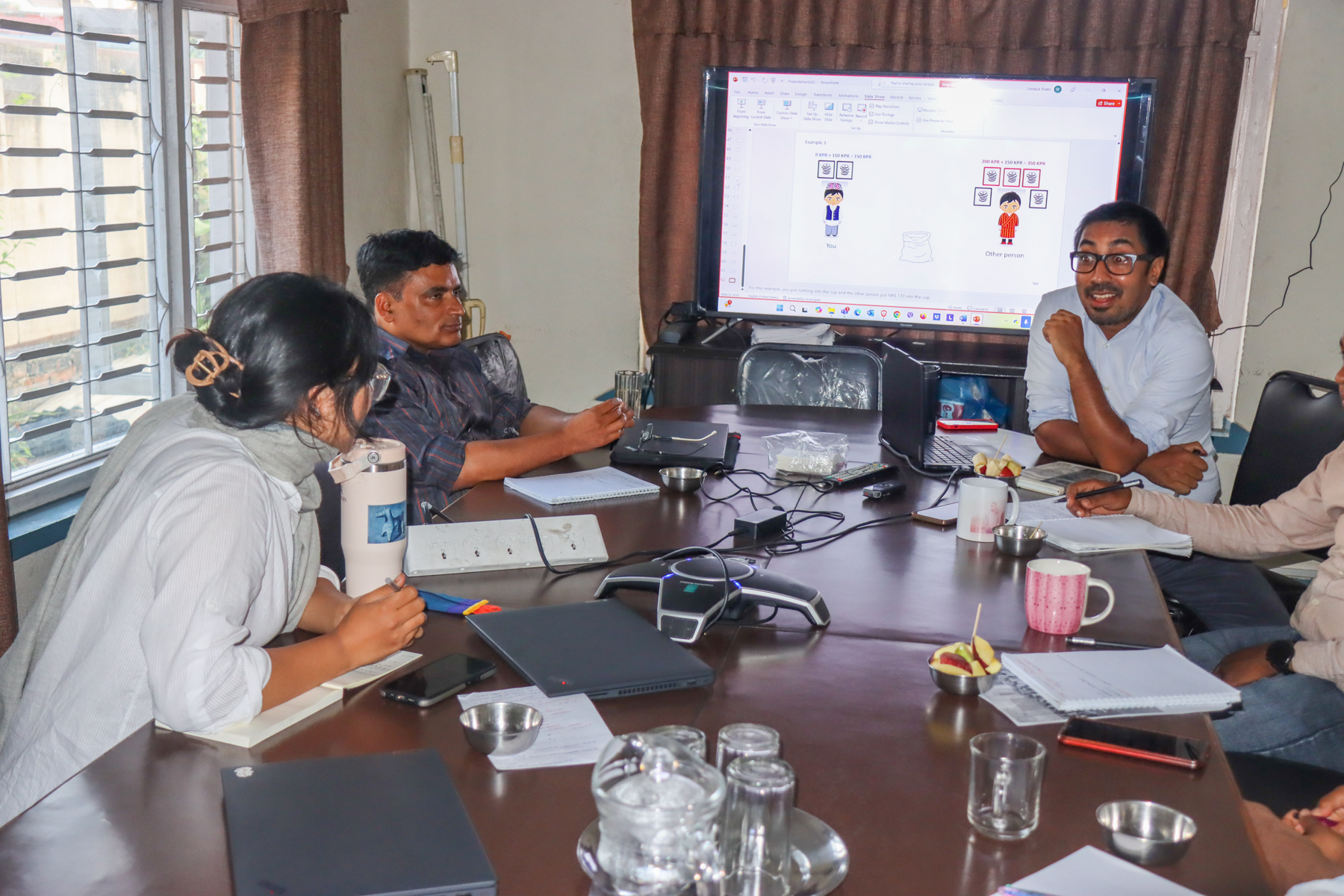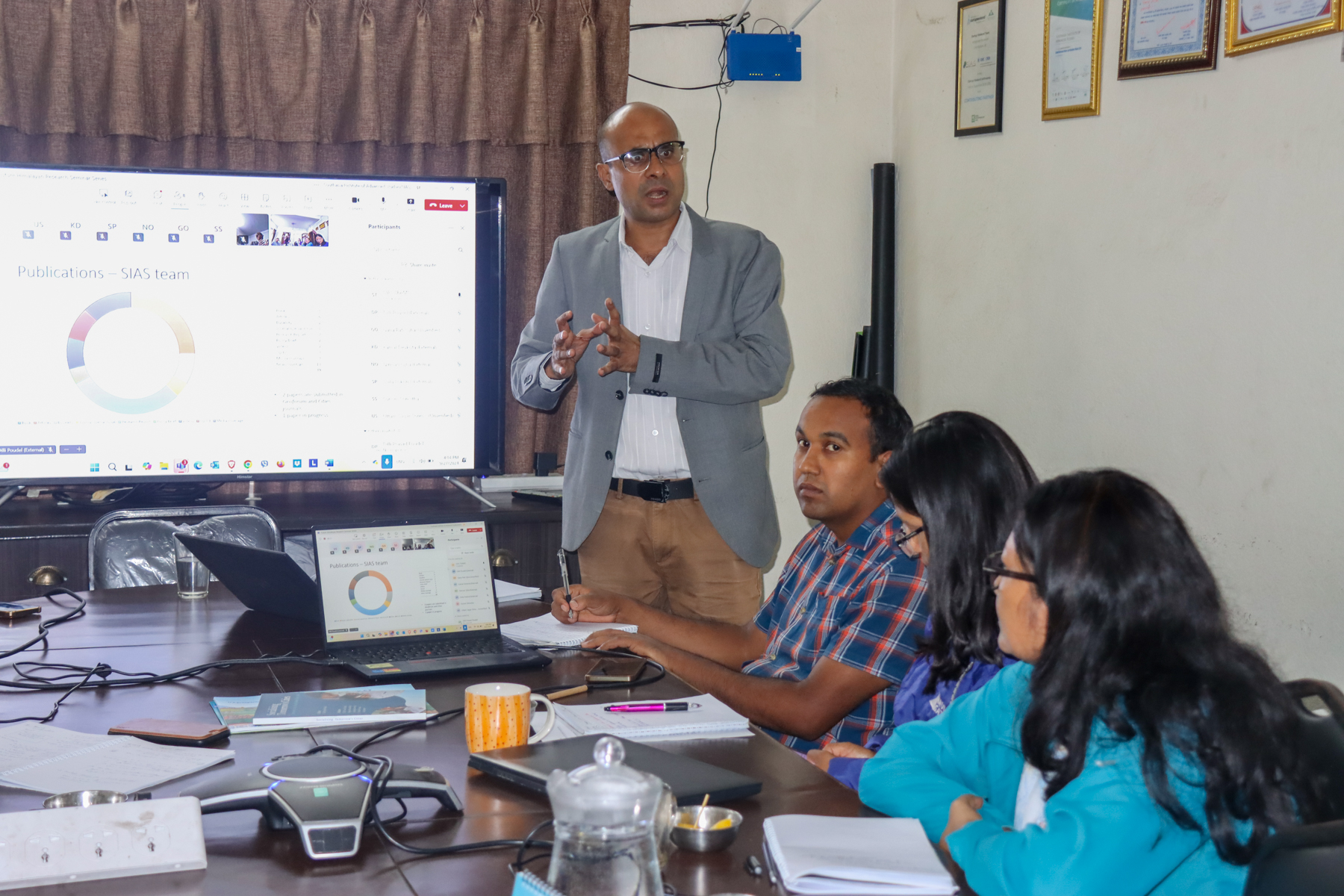Southasia Institute of Advaned Studies (SIAS), in collaboration with University of New South Wales (UNSW, Australia), Institute of Engineering (IoE, Pulchowk) and ISET Nepal, organised a workshop on “18 Months after the Nepal’s Earthquakes Practical Disaster Justice in the Recovery Work”. The devastating earthquakes that struck Nepal in 2015 are the latest in the history of disasters taking away human lives, destroying physical infrastructures, altering cultures, challenging institutions, and devastating hope and ambitions of people. Fourteen of the Nepal’s 75 districts were affected, at different degrees, by the two major earthquakes on the 26th of April and the 12th of May 2015. Following the disaster, responses have come from the local communities, government, NGOs, business, and donors, but the efficiency and effectiveness of responses from different groups and organizations vary. Questions are raised about the government responses in terms of the speed of response, capacity of raising and mobilizing resources effectively, and accountability of leadership to the affected communities. The prolonged delays in the distribution of the earthquake victims’ support grants solicit important questions such as the causes and consequences of the delays and the path forward to address practical disaster justice issues for making the support providing system more effective and legitimate for present and future operations.
The main objectives of the workshop were:
- a) Understand how key actors are responding to disaster recovery works in Nepal;
- b) Exchange insights and ideas among a wide range of Nepal recovery stakeholders and contribute to build effective partnerships between SIAS, UNSW, IOE, ISET-Nepal and other national and international stakeholders;
- c) To highlight and promote the importance of incorporating gender and practical justice considerations in disaster recovery and management; and
- d) Identify knowledge gap in policy and research arenas to conduct cutting-edge critical research on practical disaster justice for meeting the gaps.
Venue and Participants: The event took place at ICTC conference hall, IOE Pulchowk and had about a total of 55 participants representing various stakeholders such as earthquakes 2015 victims and champions, representatives from NRA, universities, academic and research institutes, NGOs/INGOs and postgraduate students carrying out applied research in the fields of disaster and crisis management for disaster recovery and reconstruction. His Excellency the Australian Ambassador to Nepal gave the key note speech that highlighted the need for policy improvement and strong leadership to complete the reconstruction process.
Key Messages from the workshop:
The workshop started with the welcome note of Dr. Triratna Bajracharya, Dean of Institute of Engineering (IOE). There were altogether four presentations followed by plenary discussions. This half-day workshop brought into light the present situation of the recovery process along with the most pressing bottlenecks and opportunities where various sectors can work upon. The workshop also highlighted on the bitter reality that the scenario of recovery process after earthquake is not that satisfying despite of all the ongoing efforts, available of considerable resources, pledges and commitments provided by international donors and commendable initiations of government as well as non-government organization in the ground level. The diverse form of complexities related to legal, administrative, institutional, knowledge and technology, capacity building in the process of earthquake recovery process and management were discussed in the forum.
The first part of the workshop was moderated by Dr. Chandra Lal Pandey, Senior Research fellow of South Asia Institute of Advanced Studies (SIAS). Joint Secretary, Mr. Ram Thapaliya spokesperson of National Reconstruction Authority updated about the national policies and plans made so far and about the reconstruction works of houses and of other public sectors such as education, health and heritages despite of the major challenges of funding gap of almost 6 billion USD, other institutional and procedural complexities and delayed cabinet decisions while catering the recovery services. He highlighted the key points that reconstruction is not only the solution but rehabilitation of the earthquake victims is equally important to uplift the victims from the suffering. Mr. Balkrishna Deuja, a representative from the community of Sindhupalchowk one of the hardest hit districts gave his talk pointing on the devastated scenario of the villages just after earthquake, relief distribution mechanism, and early reconstruction support. He added that even after crossing 20 months of the disaster the community are living under the temporary shelter and are not being able to construct houses because of unwillingness of people to prefer mud and stone masonry, unsafe ruptured land, economically costly technical compliance, dilemma over receiving grant, government complex procedures for example issue of land ownership, etc. He put his voice that government should adopt a policy that promotes initiation of the campaign of “Integrated, Safer and Managed Settlement” and legally easier land pooling system so that it will be easier for government to provide basic livelihood requirements. Dr Ajay Dixit, Institute for Social and Environmental Transition (ISET-Nepal) talked about the role of research institute towards the policy reform and uptake and the practical application, up scaling and replication of the knowledge generated on the vulnerability and resilience by the community, local institution and national government system. He highlighted that research institute should investigate the institutional dysfunction of our country that make it unable to take lead on recovery process which is beyond rescue and relief. Dr. Krishna Shrestha, University of New South Wales talked about the importance of disaster justice that considers minority and disadvantaged group who cannot respond to the disaster in the context of the recent Nepal’s earthquakes. Dr. Chandra Lal Pandey summarized that the presentation session has been able to highlight the key major issues of the earthquake disaster such as institutional complexities, huge funding gap, social equity, labor shortages in rural area, incompatible procedures in the local context, importance of indigenous knowledge for policy formulation, gap between researchers and policy makers, policy gap, poor leadership and importance of socially responsible media. He added that academicians, researcher and activists are responsible to work upon to draw the focus of nation’s priority on the issues of reconstruction process so that the government agencies responsible to deliver the services to the affected community in Nepal will be functional and accountable.
A plenary discussion moderated by Dr. Hemant Raj Ojha from University of New South Wales focused particularly on the problems and opportunity of the reconstruction process. Experts from diverse discipline talked about various aspects of recovery process. Prof Dr Prem Nath Maskey from Institute of Engineering talked about structural aspect of reconstruction and rebuilding and the alternate economical materials that is useful for rural context of Nepal, Dr Prafulla Man Singh Pradhan from Institute of Engineering sustainable housing and settlement technology, plans and strategies in the context of risky geographical setting of Nepal. Dr Pradhan stressed that the relocation should be the community based rather than exclusively government decision along with the enabling political environment. Another panelist, Dr Bharat Pokharel from Helvetas talked about the importance of community based organization and local neighborhood support mechanisms that not only help excel the reconstruction process in the nation but also the development process, to integrate the capacity of private sector and community in the national capacity and that the national policy should be guided by the ground reality. Prof Dr Roshan Man Bajracharya from Kathmandu University talked about the soil, land and water management issues in regard to the current process and practices of rehabilitation. Prof Dr Eileen Baldry from University of New South Wales delivered her talk on the importance of ensuring social inclusion and justice in the process of recovery. Mr. Krishna Gyawali, senior government official, talked about how the weak legal and institutional loophole on the government institution can affect the efficient implementation of the real action in the ground. Besides, the lack of ample of fund than what is required and lack of inter-ministerial coordination had made National Reconstruction Authority helpless towards it work. He pointed out the probable solutions to fix the institutional problem, NRA council should be downsized, discuss seriously about where the institutional loopholes lies and civil society should be watchdog about the performance of public institution. Dr. Hemant Ojha summarized that this workshop has been able to develop a very comprehensive, fairly accurate understanding of the underlying problem and has been able to impart possible solutions focusing on the earthquake disaster. He added such kind of forum is necessary where knowledge from diverse field come into one place. The workshop ended with the concluding remarks and vote of thanks from Dr. Netra Timisina, Chairperson of South Asia Institute of Advanced Studies.




